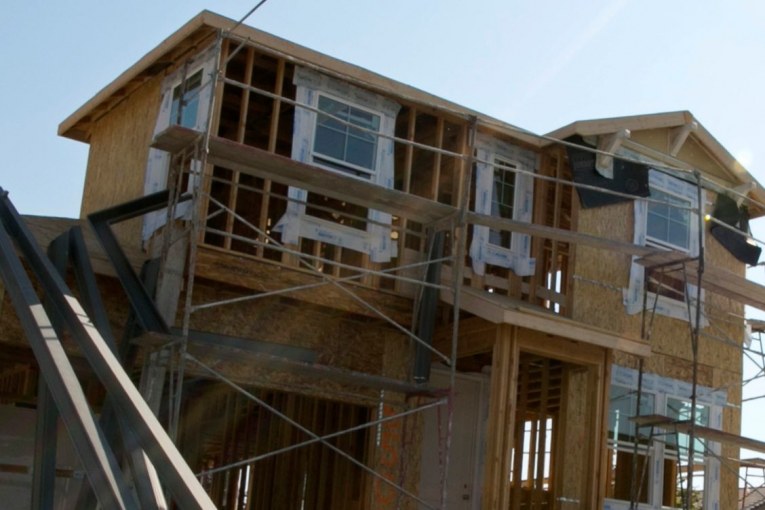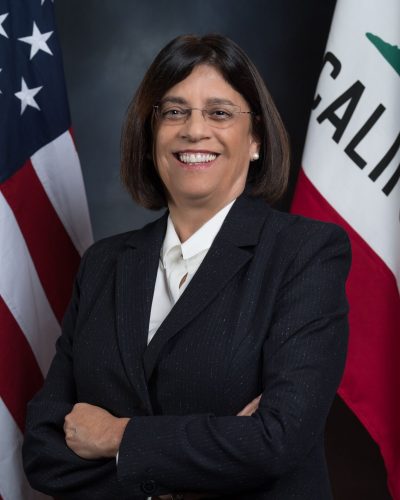
 This week, Assemblymember Cecilia Aguiar-Curry (D – Winters), will be hosting a press conference and rally in support of her bill, ACA 1. She will be joined by coauthoring legislators and advocates for local governments, housing, labor, public safety, transportation, and conservation.
This week, Assemblymember Cecilia Aguiar-Curry (D – Winters), will be hosting a press conference and rally in support of her bill, ACA 1. She will be joined by coauthoring legislators and advocates for local governments, housing, labor, public safety, transportation, and conservation.
ACA 1 would reduce the local vote threshold for approval of bond and special tax measures from a two-thirds vote to a 55 percent supermajority. This is the same vote threshold that currently applies to all local school construction bond measures. By making this change, ACA 1 puts housing and infrastructure projects on par with school proposals, so that cities, counties, and special districts have a practical financing tool to address community needs.
As she explained in an interview with the Vanguard in January – the change in the law would primarily be for affordable housing and public infrastructure projects.
She explained, “The reason I am doing this is how many times in Davis and other cities, you can’t get to two-thirds?”
The city recently put a parcel tax on the ballot last June to fund roadway repairs that received 57 percent of the vote. Under the current rules, it required two-thirds of the voters to approve it. Under Assemblymember Aguiar-Curry’s proposal, that would lower the threshold to 55 percent – where it would have passed last June, enabling the community to have funding for road repairs.
“I think it should be up to locals to determined if they want to be taxed, not the state,” she explained. As it stands right now the state can pass taxes with majority voter approval. But as the Assemblymember explained, “When it comes from the state it’s not equitably distributed.”
In practice, local officials propose a local bond or special tax, and then the voters in that community decide whether they support the idea or not. The voters would still need to overwhelmingly – with 55 percent of the vote – support a bond or special tax in order for it to be approved. Local officials will still control which priorities they recommend to voters, and local voters will still control how and where their infrastructure bond or tax dollars would be spent.
“It is distributed based on the population,” she said. But given the share that smaller communities would get, ‘What can you do with $50,000 nowadays?”
The Housing Committee Chairs from each Chamber, Senator Scott Wiener and Assemblymember David Chiu, have joined as Principal Coauthors to ACA 1.
“Local communities deserve a fair chance at making sure that their residents can afford to pay the rent or buy a home,” said Assemblymember David Chiu (D-San Francisco), coauthor of ACA 1 and Chair of the Assembly Housing and Community Development Committee. “California’s housing affordability crisis requires real investment across the entire state, and I applaud Assemblymember Aguiar-Curry for helping us get there.”
“Local voices are central to the conversation about what investments are necessary to support local businesses and improve residents’ quality of life,” said Assemblymember Aguiar-Curry. “Our city councilmembers, county supervisors, and special district representatives are elected to advance our cities, counties, towns, and neighborhoods. There’s no greater impact they can have than targeting public investments to where people need them most. It’s time our constitution allowed them greater ability to do that.”
For every dollar spent on infrastructure, there is a return benefit of several dollars back to our economy from the related construction jobs and activities. These critical projects include fixing streets and roads, constructing public safety facilities for police and fire departments, upgrading water and flood control systems, deploying broadband for internet connectivity, and maintaining parks. Not only do these construction and maintenance efforts improve communities and residents’ quality of life, they also create new local jobs.
“We need a renewed effort at every level of government to support our economy with modern, safe infrastructure. ACA 1 will empower local officials to ask their voters to approve their vision for how and when to invest in these projects,” said Assemblymember Aguiar-Curry. “Local communities know their priorities best. This constitutional amendment will offer an improved tool for local leaders to prioritize projects and determine how to best pay for them.”
Since 2001, over 2,200 local revenue measures have been placed before voters. Nearly 80 percent of all two-thirds supermajority measures garnered more than 55 percent “yes” votes, but ultimately failed passage because they fell slightly short of the current two-thirds vote threshold. If this amendment became law, those measures would have passed. Because this measure would change the Constitution, the proposal would need to be placed on the ballot for approval in the next statewide election, should the Legislature pass it.
The constitutional amendment requires two-thirds vote in both the Senate and Assembly, and then approval from the voters of California in 2020.


I’m OK with 60%… that’s the vote it takes for Davis CC to pass anything…
On bonds, I’m OK with 55%, if the voters are ones who will directly or indirectly pay for the assessments… same for 50% +1.
So, I’d not want those with “no skin in the game” passing a measure that only applies to others… “representation without taxation”, as it were.
The two-thirds thing, as to bonds, or other taxes, was a malicious ‘poison pill’ by those who are/were ‘Luddites’ (Mr’s Jarvis and Gann, particularly Gann!)… knowing that in any vote, there are ~ 10% of folk who will vote “no”, when they “don’t know”… were that those who don’t know either abstained, or had the option to vote “decline to state”…
I have zero problem with the proposed legislation, as outlined here. With my caveats, above.
55% is long overdue.
That’s a stretch. You can’t dig a hole in the ground and say the constructions jobs and activities were worth spending a taxpayer dollar. It has to be a BENEFICIAL project.
As an example of a hole in the ground: proposed Yolo Rail Relocation. Yolo County wants it only because they think they can scam federal flood control dollars to benefit developers. It’s a scam of mind-boggling proportions. Take other people’s money (federal) via politicians (state feds) and bring it to Yolo County. What’s not to love? Corruption, that’s what.
Alan, I fully agree that the Yolo Rail Relocation thing is a huge “boon-doggle”/scam… but the main beneficiary is not the “developers”, it is a single operator, who also does business in another “boon-doggle”. One that some ‘lionize’. Located here in Davis.
Why WM, I have NO IDEA who you mean or WHAT you are talking about 😉
But seriously, it’s WAAAAAAAAAAAY bigger than that one ‘single operator’. WAAAAAAAAY bigger players, WAAAAAAAAAAAAAAY-WAY deeper the rabbit hole goes.
We should compare notes… will try via David…
Good idea. Thank you.
Would have loved for Aguiar-Curry’s office to have reached out to the Bicycling, Transportation and Street Safety Commission and other sustainable mobility advocates in Davis so that we could appear with her as a way to demonstrate – first and foremost – how “assumption is mother of all f*ckups” and to inquire if it’s related to our self image, e.g. why our city uses an anti-egalitarian anachronism that was rarely at best used in Davis as its symbol (to promote cycling) and – if everyone’s coffee’d up enough – to also ask why we let Downtown Davis use a bicycle in their branding due to their neutron bomb spew about SMRCP*.
*Slightly more responsibly-costed parking.